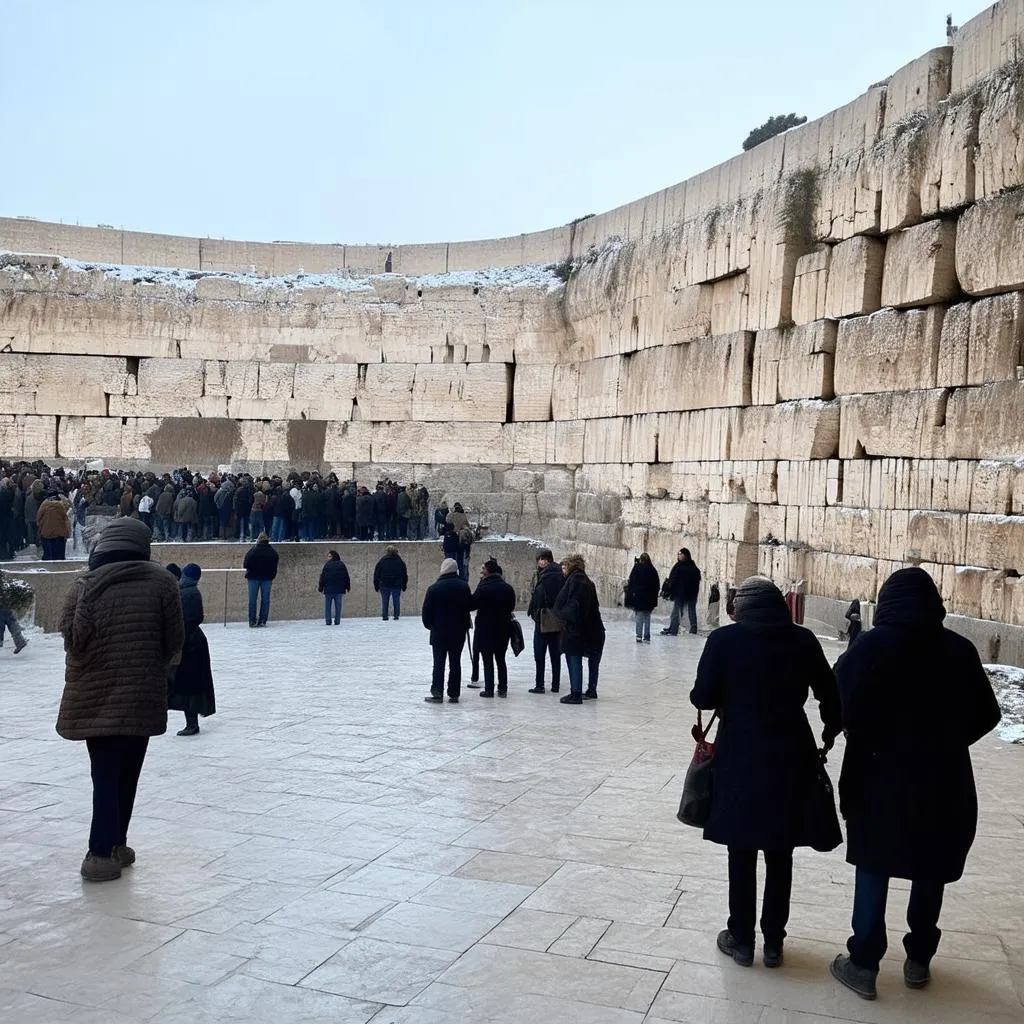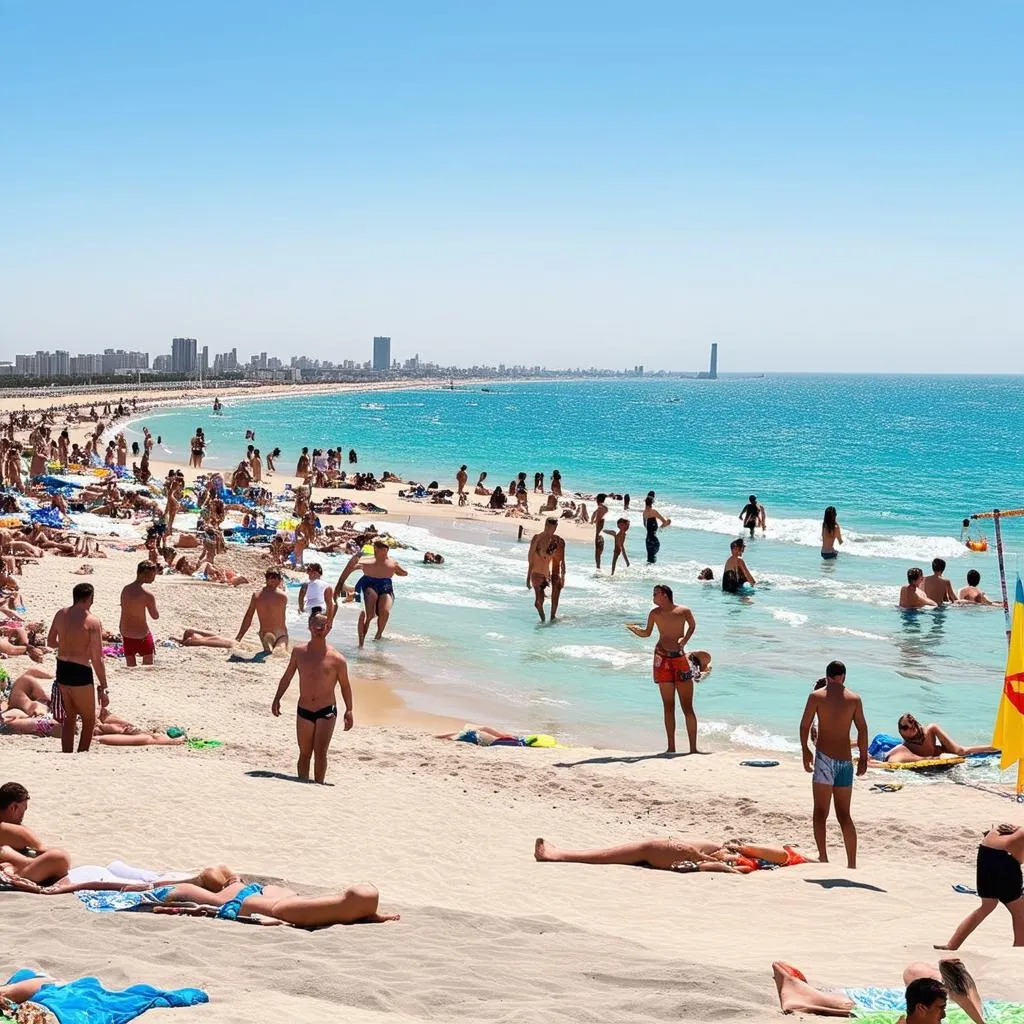“To travel is to discover that everyone is wrong about other countries,” said Aldous Huxley. And there’s no place that proves this more than Israel. But with its diverse landscapes and year-round sunshine, planning your trip around the best time to travel to Israel can be the difference between a good trip and an unforgettable journey.
Understanding Israel’s Climate
Israel enjoys a Mediterranean climate, characterized by long, hot, dry summers and mild, wet winters. However, microclimates abound due to the country’s varied topography, from the Mediterranean coast to the Negev Desert.
Spring (March – May): A Burst of Life and Color
Spring in Israel is simply magical. Wildflowers carpet the landscapes, temperatures are pleasant, and the Jewish holidays of Passover and Shavuot bring a unique cultural richness.
What to Do:
- Hike the Israel National Trail: This 620-mile trail traverses the entire country, and spring offers ideal temperatures for hiking through blooming landscapes.
- Explore Jerusalem: Wander the ancient alleyways of the Old City, visit the Western Wall, and soak in the historical atmosphere.
- Float in the Dead Sea: With comfortable water temperatures, spring is the perfect time to experience the buoyancy of the Dead Sea.
Tip: Consider booking accommodations and tours in advance, as spring is a popular time to visit.
Summer (June – August): Sun-Drenched Days and Lively Nights
Summer in Israel is hot and dry, perfect for beach lovers and those seeking a vibrant nightlife scene.
What to Do:
- Relax on the Mediterranean Coast: From Tel Aviv’s bustling beaches to the calmer shores of Netanya, there’s a beach for everyone.
- Explore the Underwater World: Go scuba diving or snorkeling in Eilat, renowned for its coral reefs and colorful marine life.
- Experience Tel Aviv’s Nightlife: Dance the night away in one of Tel Aviv’s many bars and clubs.
Tip: Carry plenty of water, wear sunscreen, and be prepared for large crowds, especially during July and August.
Autumn (September – November): Pleasant Weather and Festivals Galore
Autumn brings pleasant temperatures and fewer crowds, making it an ideal time to explore Israel’s historical and cultural treasures.
What to Do:
- Celebrate Sukkot: Experience this joyous harvest festival by visiting decorated sukkahs (temporary shelters) and participating in festive meals.
- Explore Masada: Hike or take a cable car to the top of this ancient fortress for breathtaking views of the Judean Desert.
- Visit the Ramon Crater: Witness the grandeur of this natural wonder, especially stunning during the cooler autumn months.
Tip: Autumn is a shoulder season, offering potential savings on flights and accommodations.
Winter (December – February): A Different Perspective
Winter in Israel is mild and rainy, but don’t let that deter you. This season offers a unique perspective on the country, with fewer crowds and the opportunity to experience the beauty of the desert landscapes.
What to Do:
- Explore Jerusalem’s Holy Sites: With fewer crowds, winter provides a more intimate experience at sites like the Church of the Holy Sepulchre.
- Hike in the Negev Desert: The cooler temperatures make winter ideal for hiking in the desert, witnessing waterfalls and blooming wildflowers.
- Indulge in Israeli Cuisine: Warm up with hearty stews, fresh-baked bread, and other culinary delights.
Tip: Pack layers of clothing, as temperatures can fluctuate throughout the day.
 Winter in Jerusalem
Winter in Jerusalem
FAQs: Answering Your Questions About the Best Time to Visit Israel
Q: Is it safe to travel to Israel?
A: Israel is generally considered safe for tourists, with a strong security presence. However, it’s always important to stay informed about current events and follow any travel advisories issued by your home country. For the most up-to-date information, you can refer to resources like the U.S. Department of State travel advisories.
Q: What is the best time to visit Israel for religious purposes?
A: For those interested in religious tourism, major Jewish holidays like Passover, Shavuot, and Sukkot offer unique cultural experiences but also draw large crowds. Christian pilgrims often visit during Easter and Christmas.
Q: Can I travel to Israel on a budget?
A: Yes, it’s possible to travel to Israel on a budget, especially during the shoulder seasons (spring and autumn) and by taking advantage of public transportation and budget-friendly accommodations.
 Tel Aviv beach
Tel Aviv beach
Planning Your Trip to Israel: Tips from TravelCar.edu.vn
- Visa Requirements: Most nationalities can enter Israel visa-free for up to 90 days, but it’s essential to check the specific requirements for your country.
- Currency: The official currency is the Israeli New Shekel (ILS).
- Language: Hebrew and Arabic are the official languages, but English is widely spoken.
- Getting Around: Israel has an efficient public transportation system, including buses and trains. Renting a car is also an option for exploring at your own pace.
Your Unforgettable Israeli Adventure Awaits
Whether you’re drawn to ancient history, vibrant cities, stunning landscapes, or religious sites, Israel has something to offer every traveler. By considering your interests and the best time to travel to Israel, you’re sure to have an unforgettable journey.
For more travel tips and information on planning your dream trip to Israel, be sure to explore the other insightful articles on TRAVELCAR.edu.vn, including our guides to Jerusalem ([link to https://travelcar.edu.vn/du-lich-jerusalem/]: “Jerusalem travel guide”) and religious tourism ([link to https://travelcar.edu.vn/a-place-people-travel-to-for-religion/]: “Religious tourism in Israel”).
Start planning your adventure today!

